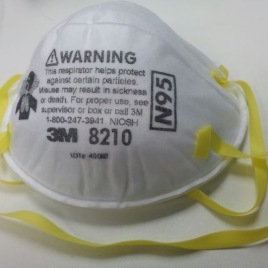Further evidence is linking the Zika virus to fetal brain damage and now to serious neurological disease in adults. In the first paper researchers performed brain scans on 23 babies born to mothers thought to be infected with Zika. The scans revealed a majority of the babies had severe brain malformation and scar-like lesions […]
Tag: public health

Celebrate the International Year of the Pulse every day and who know’s what you’ll lose
Eating just one serving of beans, peas, chickpeas, or lentils a day could help contribute to a modest weight loss, according to a meta-analysis of clinical trials. Researchers founding eating 130 grams (or ¾ of a cup) of the food group known as pulses each day led to just over half a pound of […]
Stop screening for developmental delay
The Canadian Task Force on Preventive Health Care recommends against using a screening test to identify developmental delay in young children who show no apparent signs of delayed development. The recommendation applies to children aged one to four years old who have no visible signs, or whose parents have no concerns, of delay. Developmental delay […]
The next miracle cure – exercise
Physical activity and specific exercises have been shown to be effective in alleviating the symptoms of many chronic health conditions such as knee osteoarthritis, low back pain, and chronic obstructive pulmonary disease (COPD). However a new review shows these exercises are being under-prescribed by physicians. The authors suggest this is due to a lack of […]
Strengthening the link between Zika and microcephaly
Evidence supporting the link between the Zika virus and microcephaly has been found in a retrospective study of the outbreak in French Polynesia between October, 2013 and April, 2014. Researchers examined medical records to find cases of microcephaly between September, 2013 and July, 2015. They found eight cases of microcephaly during this time, seven of […]
Screening for lung cancer – New Canadian guidelines
New lung cancer screening guidelines have been released by the Canadian Task Force on Preventive Health Care. The guidelines take into account the latest evidence and aim to balance the benefits of early detection against the harms caused by overdiagnosis and invasive testing. The new guidelines recommend annual CT scans for adults aged 55-74 years […]

Protecting healthcare workers – Masks v. Respirators
Respirators and surgical masks both help protect health workers from respiratory infections, however there has been a debate about which is more effective and different guidelines provide different recommendations. A review of the accumulated evidence does not suggest that the N95 respirator is superior to surgical masks. The authors suggest a randomized controlled trial, […]
Public health and the Missing and Murdered Indigenous Women Inquiry
An editorial is calling for public health to play a larger role in the Missing and Murdered Indigenous women inquiry (MMIW). Dr. Kirsten Patrick, a deputy editor at the Canadian Medical Association Journal believes many factors underlying the interpersonal violence plaguing Aboriginal women and girls are linked to mental health issues, substance abuse, and other […]
Urgent action needed against mycotoxin contamination
The International Association for Research on Cancer is urging action against widespread mycotoxin contamination in developing countries. More than 500 million people are being exposed to fungal toxins, which can cause illness and even death. Dr. David Miller, from Carleton University, is the chair of the working group. Original research published by the International Agency for Research on […]

Winter driving must become safer
An editorial from the Canadian Medical Association Journal calls for improving winter road maintenance and safety to decrease the number of deaths due to winter driving in Canada. The authors recommend: Improving road maintenance standards, and tailoring maintenance to local conditions. Government oversight of road service companies to ensure adherence to regulations. Legislation requiring […]
Something’s fishy about childhood obesity
Eating fish more than three times a week during pregnancy is associated with an increased risk of childhood obesity, according to the results of a new study. Women who ate fish more than three times per week were more likely to give birth to children with higher BMI values at ages two, four, and six. […]
Losing money to lose weight
Paying employees to exercise doesn’t work, but taking money away might, according to a new study. Removing a small amount from a cash reward given upfront was more effective at promoting daily physical exercise than receiving a small reward for meeting physical activity goals. Participants in a 13-week physical activity program were given a goal […]
Some antibiotics are increasing children’s’ health risks
Using a specific group of antibiotics changes the gut microbiota in children, leading to an increased risk of developing asthma and becoming overweight, according to a new study. This group of antibiotics, macrolides, are used as an alternative for individuals who are allergic to penicillin. Researchers analysed the fecal microbiota of 142 children (aged two […]
High-rise equals high-risk for cardiac arrest patients
Living on a higher floor means a person has a smaller chance of surviving cardiac arrest, according to the authors of a new study. Researchers believe this effect is caused by the extra time it takes emergency personnel to reach the patient. The study examined data from over 8,000 adults who suffered out-of-hospital cardiac arrest […]
Biologics and Biosimilars | SMCC Webinar
Biologics and Biosimilars | SMCC Webinar | January 7, 2016 | Video available Biopharmaceuticals, or Biologics have successfully improved the care of several hard to treat conditions, such as rheumatoid arthritis, Crohn’s disease and cancer. More of these complex biological drugs are coming. In the US over 900 biologics are being developed for more than 100 diseases. While they […]
E-cigarette flavourings linked to respiratory disease
Tests of 51 flavours of e-cigarettes have found 47 have chemicals which have been linked to respiratory disease. Those tested included flavours such as Cupcake and Cotton Candy, which are targeted towards younger consumers. Diacetyl, which is considered a respiratory hazard by the Flavor and Extract Manufacturers Association of the USA, was found in more […]